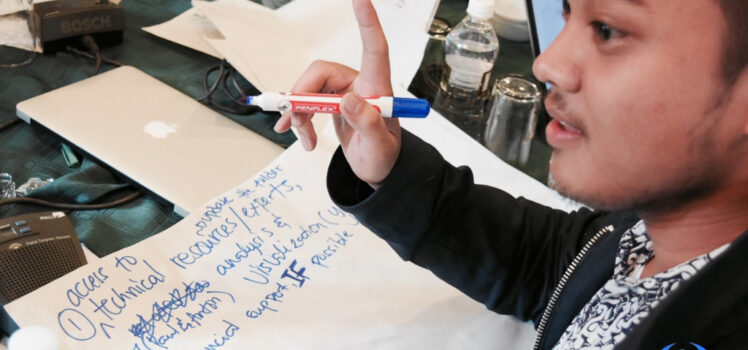I don’t have a biting analysis to sum up the 2016 election or the handful of days since then. And I especially can’t speak with the voice of an immigrant, or a person of color, or a woman, or a member of the LGBTQ community, since I belong to none of those groups.
But seeing the acute anger and fear among my loved ones and colleagues in communities targeted during the campaign—people facing political threats, verbal assaults and most of all physical violence even as you read this—I’ve felt grief-stricken and confused. I’m writing not to tell you about my grief (which isn’t that interesting and has the luxury of being felt from comparative safety) but about my confusion.
The Personal Democracy Forum conference has always been a celebration of technology’s role transforming politics and redefining democracy. But this year’s celebration included particularly strong notes of caution, like danah boyd’s talk on the unintended consequences of code, Mark Surman’s warning that internet freedom is shrinking and Mariana Ruiz Firmat’s reminder that equity within our organizations is a design imperative, not just a good hiring practice.
The chorus of realistic voices was my second favorite thing about PDF16. My favorite was our own cautionary panel, “Is the Civic Tech Story Broken?”, which I presented with panelists Sam Dorman, Elizabeth Eagen and Shaifali Puri.
Look who owns the Google result for "Hillary Clinton" as of tonight at 10:00 pm.
If you've read my Twitter stream this summer you've seen various levels of disdain for Donald Trump. Sometimes it's important to push back when someone peddles bs. Sometimes it's necessary to beat back loud, noxious, memorable exclamations with something just as loud and just as memorable.
But sometimes sensationalism is a trick to control the conversation. I fell for that trick today, Tweeting too much when the GOP candidate "walk[ed] up to the line of treason" and stole attention from the country's history-making nomination of the first female presidential candidate from a major party.
This is the second in a two-part Q&A about PWYP’s Data Extractors programme, its progress and its potential to help PWYP members seize the opportunities of open data. The programme’s manager James Royston, PWYP Advocacy Officer, spoke with Jed Miller, a longtime digital strategist and PWYP colleague who helped facilitate the Data Extractors workshops in Indonesia and Zimbabwe.
Q (Jed Miller): The past 20 days have been a critical time for the PWYP movement, with multiple oil companies releasing new data and details about their payments, and with U.S. regulators announcing a final version of the long-delayed Dodd-Frank rules for company reporting. So even though you and I spoke just a couple of weeks ago, a lot has happened. What are the members of the Extractors programme seeing over these first few weeks of “the new normal?”
It is a historic year for the Publish What You Pay (PWYP) movement, as oil and mining companies begin to issue new and newly-detailed reports on their payments to governments. The anticipated windfall of data is the result of new regulations in Europe and Canada, and similar transparency requirements are likely to come into effect soon for companies listed on U.S. stock exchanges.
As PWYP and its partners prepare to harvest this new supply of data, we are increasingly aware of the challenges on ‘the demand side’ of financial disclosures. Most financial data does not magically appear online in easy-to-find locations or easy-to-use formats. As companies become more open with their data, campaigners must become more adept at using it.




